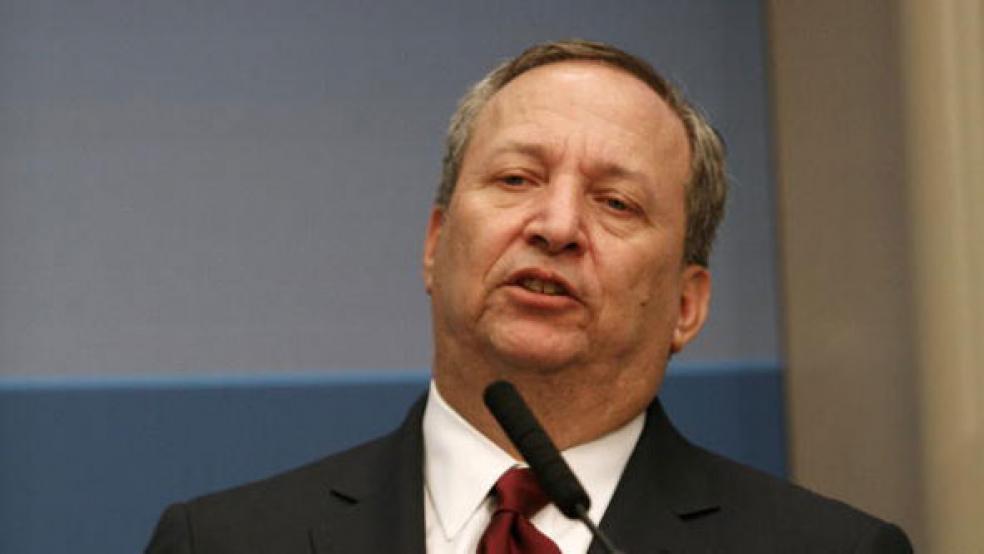More tax incentives, infrastructure investment, job creation measures, and extension of middle class tax cuts are needed to propel the economy forward beyond the effects of last year’s $862 billion stimulus, outgoing White House economic adviser Larry Summers said at the National Journal’s Workforce of the Future conference Tuesday in Washington D.C. “Fixing roads, giving tax incentives, doing research, supporting small business, helping struggling households—these are all centrist and focused on supporting the market system,” Summers said. “It’s disappointing that there hasn’t been more willingness to cooperate at a time when the country has very serious problems.”
Republicans are aggressively campaigning to reverse many of Obama’s policies, including urging repeal of any remaining stimulus funding, as they work to regain control of the House and Senate in this November’s elections.
Summers acknowledged that his optimistic prediction for economic growth last spring never materialized as the unemployment rate hovers at 9.6 percent and grim economic indicators keep pouring in. But he called the last few months’ performance a byproduct of the European debt crisis that stifled confidence and fears of another financial meltdown that made companies skittish to hire, and rather than a harbinger of another crisis. “The challenge now is to build on the progress we’ve made and to accelerate the growth,” Summers said.
Summers praised the administration’s original stimulus proposal, and expressed dismay that what was eventually passed was nearly 20 percent smaller than what was originally put forward. “Look at the quality of our roads, airports, infrastructure and rail lines and it is hard to believe that there isn’t something beneficial to do putting people back to work building and repairing that infrastructure…that money can’t be deployed in a more effective way,” he said.
On the heels of Obama’s call yesterday for a longer school year, Summers briefly discussed the potential economic repercussions of a failing U.S. education system. “Those who think that all we need to do is manage the dials of monetary and fiscal policy better seem to miss the very fundamental fact that lagging education is probably the most important problem in the long run,” he said. “No matter how successful we are in creating demand, there are still very serious issues of those whose skills are less adapted to the demands of the economy than they once were.”





